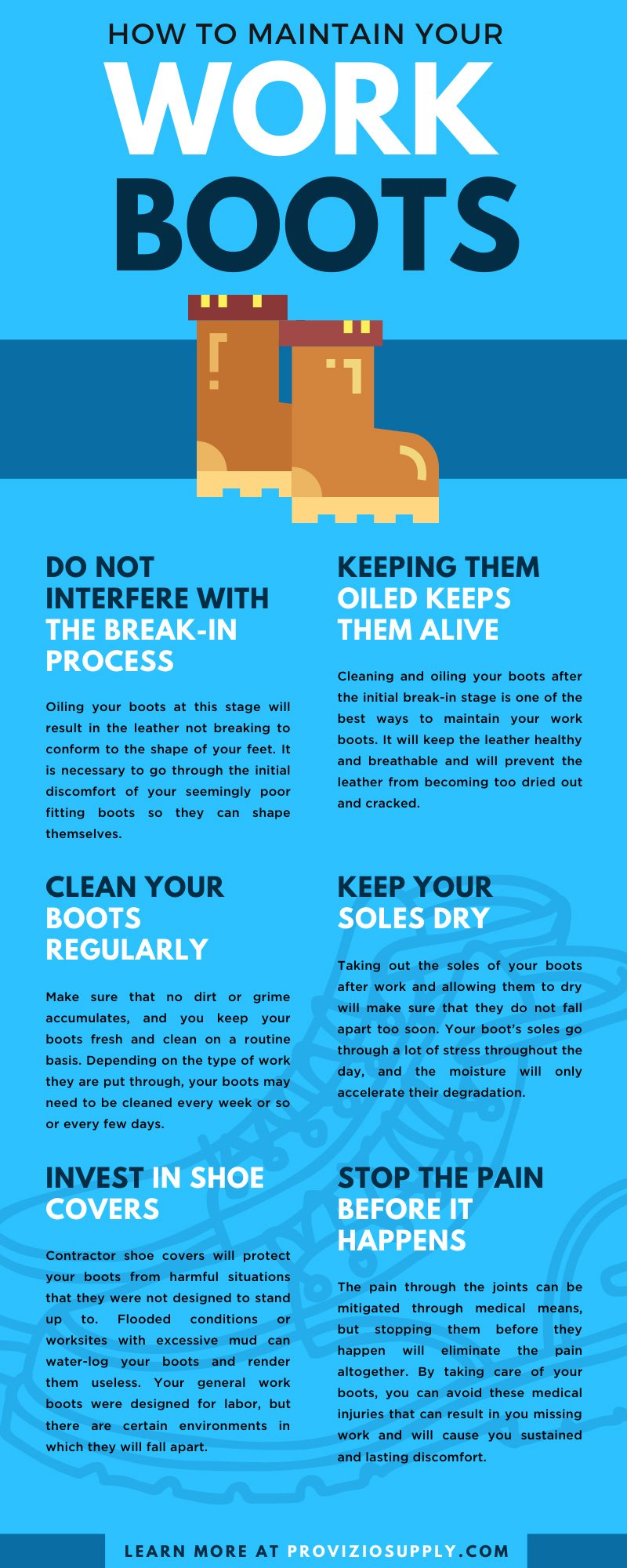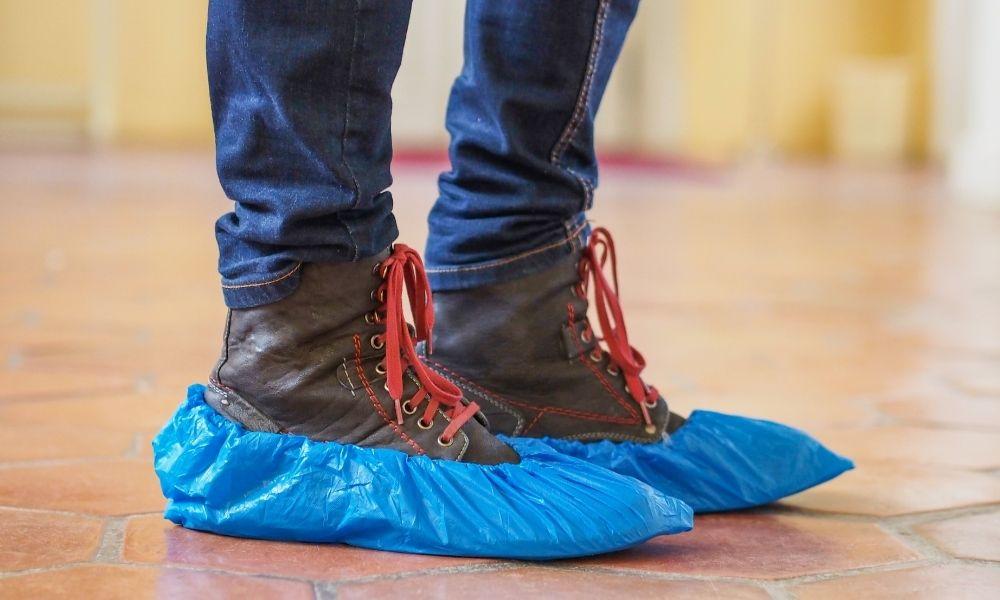Uncategorized
How To Maintain Your Work Boots
Your work boots can be some of the most important equipment that you have. They make sure that your feet are safe while on a job site so that you can perform your responsibilities. If your boots are neglected, then that can mean that your own personal health could be at risk.
Knowing how to maintain your work boots will not only benefit your wellbeing but can also reduce the financial burden of purchasing more work boots when your current ones fall apart.
Breaking Them In
There is an initial break-in period when it comes to your boots. This is the time when they shape to the contours of your feet, making them more comfortable over time. Boots may actually make your feet sore when first working in them but allowing this break-in period will mean they will eventually fit correctly.
Do Not Interfere With the Break-In Process
There are ways in which you can interrupt this process of your boots molding to your feet. One of these ways can be excessive oiling of your boot’s leather. Normally, oiling them is a good way to take care of them, but this is not the case when you first purchase them.
Oiling your boots at this stage will result in the leather not breaking to conform to the shape of your feet. It is necessary to go through the initial discomfort of your seemingly poor fitting boots so they can shape themselves. What will follow after oiling your boots before you break them in will be poor-fitting shoes that will cause more stress in the long run.
Proper Ways To Maintain Your Boots
Insoles
Taking daily care of the soles of your boots is the first order of business to maintain the whole. Throughout the day, it is natural that your feet will sweat. Your soles will absorb that moisture, which will cause them to degrade faster if they are not dried properly.
Keep Your Soles Dry
Taking out the soles of your boots after work and allowing them to dry will make sure that they do not fall apart too soon. Your boot’s soles go through a lot of stress throughout the day, and the moisture will only accelerate their degradation.
Replace Soles When Necessary
If you notice that your boots are no longer comfortable, then sometimes the soles are the only things that need replacing. Make sure that they are still stable after long use, and do not wait to replace them when you notice they are no longer adequate.
Clean Your Boots Regularly
Make sure that no dirt or grime accumulates, and you keep your boots fresh and clean on a routine basis. Depending on the type of work they are put through, your boots may need to be cleaned every week or so or every few days.
How To Properly Clean Your Boots
Cleaning your boots should only be done with water or water-based cleaning products. For light grime, it is best to use a clean cloth to wash the boots. For harder substances when the dirt is caked on, a soft nylon brush should be used.
You can dry off your boots with a cloth, but do not attempt to dry them with heat. This can result in the leather being damaged and the integrity of the boot compromised. After your boots are dry, apply a water-based sealant or boot oil.
Keeping Them Oiled Keeps Them Alive
Cleaning and oiling your boots after the initial break-in stage is one of the best ways to maintain your work boots. It will keep the leather healthy and breathable and will prevent the leather from becoming too dried out and cracked. These cracks will form at stress points and will eventually render your boots unsuitable for work.
Protect Your Boots From the Elements
There are times when the worksite is too treacherous for your boots alone. If there is excessive water or mud present, then those can harm your boots and cause them to fall apart faster.
Invest in Shoe Covers
Contractor shoe covers will protect your boots from harmful situations that they were not designed to stand up to. Flooded conditions or worksites with excessive mud can water-log your boots and render them useless. Your general work boots were designed for labor, but there are certain environments in which they will fall apart.
If these situations are a common occurrence, then investing in specialized boots is recommended. But if these hazardous situations are out of the ordinary, then purchasing specialized boots may not be financially sound. Shoe covers are a cheaper and reliable alternative when presented with harsher environments.
Hazards of Neglecting Your Boots
Your work boots are your first line of defense against the hazards of the worksite. Depending on where the job is or what profession, whether it be carpentry, landscaping, plumbing, well-kept boots are a necessity. Injuries and discomforts with the foot can have far-reaching consequences all over the body.
Repetitive Strain Injury
Neglected boots with poor soles or boots with poor heel support will cause unnecessary strain on the feet and legs. Walking and working in these boots that are no longer stable will result in musculoskeletal disorders that can affect the entire body, starting with the feet. Some of these disorders include:
- Plantar Fasciitis
- Fallen Arches
- Flat Feet
These repetitive movements, along with the compromised boots, will result in poor posture, putting a harmful strain on the spine. This stress on the spine will also spread to the knees, hips, and neck, causing further pain and discomfort.
Stop the Pain Before It Happens
The pain through the joints can be mitigated through medical means, but stopping them before they happen will eliminate the pain altogether. By taking care of your boots, you can avoid these medical injuries that can result in you missing work and will cause you sustained and lasting discomfort.
Risk of Infection
With the stress on joints and bones, there is also the danger of infection to your feet. It can be a result of not properly drying out your boots, as bacteria festers most in dark and damp environments. Failing to dry out your boots can result in the formation of this harmful bacteria, which can irritate the skin or cause serious infection if it gets into your bloodstream via cuts and scrapes.
Well-Kept Boots
If you take care of your work boots, then they will take care of you. Faulty boots will pose a danger to your health in several ways, and it takes routine maintenance to ensure that the worst-case scenario does not happen.


